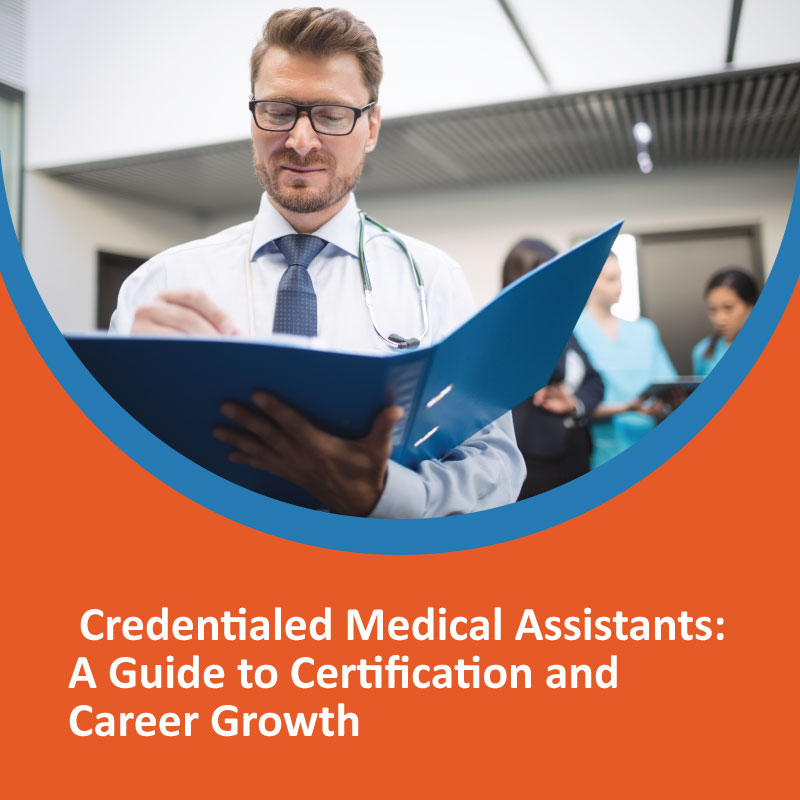In today’s competitive healthcare industry, credentialed medical assistants stand out as skilled and reliable professionals. These individuals have completed formal training and earned certification through nationally recognized organizations. Their credentials prove their commitment to patient care and professional standards. Whether you’re considering a career in healthcare or looking to hire top-tier talent, understanding the importance of credentialed medical assistants is essential.
Certified medical assistants not only ensure efficient clinical and administrative work, but they also help physicians deliver better patient outcomes. With credentials from organizations like the AAMA (American Association of Medical Assistants) or NCCT (National Center for Competency Testing), these professionals bring credibility, skill, and accountability to medical settings. Let’s explore what makes them different and why certification matters in the medical field.
You may read: Medical Staff Credentialing: A Complete Guide
What Is a Credentialed Medical Assistant?
A credentialed medical assistant is someone who has completed a medical assisting program and passed a nationally recognized certification exam. These certifications validate their clinical, administrative, and ethical skills. Common credentials include:
- CMA (Certified Medical Assistant) – offered by the AAMA
- RMA (Registered Medical Assistant) – by AMT (American Medical Technologists)
- NCMA (National Certified Medical Assistant) – by NCCT
- CCMA (Certified Clinical Medical Assistant) – by NHA
These credentials ensure the assistant is trained in vital areas like phlebotomy, patient communication, medical billing, EHR systems, and infection control.
Why Is Credentialing Important in Medical Assisting?
Ensures Professional Standards
Credentialing helps maintain high standards in medical care. Certified professionals are expected to follow ethical practices, stay updated with new skills, and deliver quality service.
Builds Trust in Patient Care
Patients often feel more confident when they are treated by certified staff. Credentialed medical assistants offer reassurance through their demonstrated knowledge and professionalism.
Expands Career Opportunities
Employers prefer credentialed candidates because they meet industry standards. Certification can lead to better jobs, higher pay, and opportunities in specialized fields like cardiology or pediatrics.
How to Become a Credentialed Medical Assistant
- Graduate from an Accredited Program
Enroll in a CAAHEP or ABHES accredited medical assisting program. These programs include both classroom and hands-on training. - Apply for Certification
Choose a certifying organization (e.g., AAMA or NHA) and apply for their exam. Most require proof of graduation and transcripts. - Pass the Certification Exam
Exams typically cover anatomy, medical law, pharmacology, and clinical procedures. Preparation is key. - Maintain Your Credentials
Most certifications require renewal every few years with continuing education or retesting.
Responsibilities of Credentialed Medical Assistants
Credentialed MAs play a crucial role in both clinical and administrative areas:
- Taking vital signs and recording patient history
- Assisting with physical exams and minor procedures
- Administering injections and drawing blood
- Managing appointment scheduling and medical records
- Handling insurance billing and coding
- Supporting doctors with diagnostic tests
Their broad skill set makes them indispensable in clinics, hospitals, and specialty practices.
Where Do Credentialed Medical Assistants Work?
You’ll find credentialed medical assistants in a variety of healthcare settings, including:
- Primary care clinics
- Outpatient care centers
- Hospitals
- Specialty practices (like dermatology or cardiology)
- Urgent care facilities
Their flexibility and training allow them to adapt quickly to different environments.
FAQs
Q1: What is the difference between a certified and non-certified medical assistant?
A certified (credentialed) medical assistant has passed a national exam, proving their knowledge and training. Non-certified MAs may still work but often lack formal proof of their skills.
Q2: How long does it take to become credentialed?
Typically, it takes 9 months to 2 years to complete a medical assisting program and pass the certification exam.
Q3: Is a credential required to get a medical assistant job?
Not always, but many employers prefer or require it. Being credentialed increases your job prospects and credibility.
Q4: Which certification is best for medical assistants?
The CMA from AAMA is one of the most widely recognized, but others like RMA, CCMA, and NCMA are also respected.
Q5: Can credentialed medical assistants specialize in certain fields?
Yes, with experience and additional training, MAs can work in specialized fields like pediatrics, oncology, or cardiology.
Conclusion
Credentialed medical assistants play a vital role in delivering high-quality care across the healthcare system. Their training, certification, and ethical standards make them trusted team members in any clinical setting. If you’re looking to grow your healthcare career or hire reliable staff, choosing credentialed professionals is a smart move. Their dedication to excellence sets them apart—and keeps patients in good hands.

